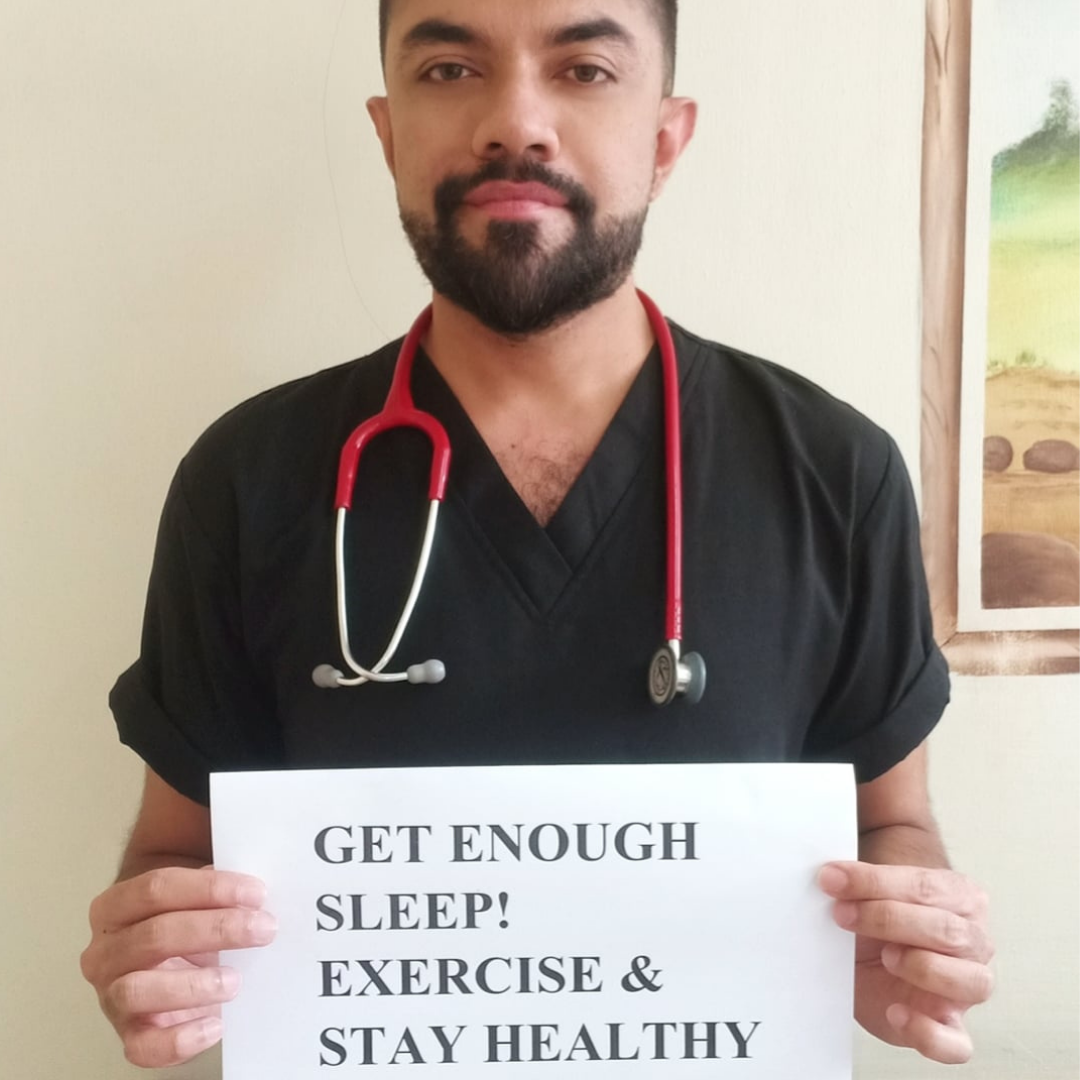
Dr. Shafraz Kazia
My message to colleagues around the world: We see you. We see your pain. You are doing your best to protect yourself and save lives in dire circumstances.|
Country: Kenya
|
|
What would you like people to know and understand about your work during the COVID-19 pandemic? I am a medical doctor and have been working with children and families for the past five years. I also hold a master’s degree in child development and I am a Holistic Sleep coach for children. I mostly work in the Paediatric Emergency Department, where we see a cocktail of diseases and emergencies on a normal day. We saw a surge in suspected and positive Covid-19 cases in July and August as well as the common cold and various other illnesses as Kenya prepared to head towards its peak in August/September. Medical and nursing school never prepared us for what we are facing right now, however we are learning something new about the virus every day. What are you learning during these times as an individual and a professional? The pandemic has taught me a lot about being resilient, taking care of myself both physically and mentally, as I am aware that I cannot fill someone else’s glass when mine is empty. It is also important not to overwork yourself and reduce your exposure to the hospital. As healthcare workers we often ignore self-care and just dive into work thinking we are invincible, but the pandemic has changed that narrative for most of us. Personally, I feel like it has brought the human condition together to fight against an unseen threat and we now realize how much we need each other through these trying times and will possibly find our way home in the midst of our busy lives. When you think about the work you are doing and children and families you are serving what concerns you the most now and for the next period? I am very concerned about the mental health of our parents and children. We have not lived in times like these for the past century. The uncertainty of what tomorrow will bring in terms of health, economic strain and losing loved ones among others is a trauma many of us will only realize once this is all over since our brains are still in survival mode. It is crucial for our governments, societies, and the collective parental village to support each other during this time. There has been a lot of conversation around mental health especially this year and we should work towards normalizing this. As child care professionals, we must also be focused more than ever on child health, infant mental health and early childhood development. If you could send one positive message to your colleagues around the globe at these challenging times, what would it be? We see you. We see your pain. You are doing your best to protect yourself and save lives in dire circumstances. You are dealing with shortages of Personal Protective Equipment (PPE), living away from loved ones, and being a victim of abuse from some governments and at the work place. To those who have lost their lives working in the front line, to those who are still soldiering on every day, when all this is over, history will remember you as healthcare heroes. If you could send one positive message to children and families/caregivers around the globe at these challenging times, what would it be? The times we live in are very challenging, but we need to take this opportunity to bond with our children and families in ways we have not been able to due to our busy schedules. The new normal may bring more positive changes -- the way we work and communicate with each other, our value systems, the concept of self-care, our mental health and the importance of conscious parenting. We can get through this by appreciating the silver linings, but most importantly believing in hope. |
